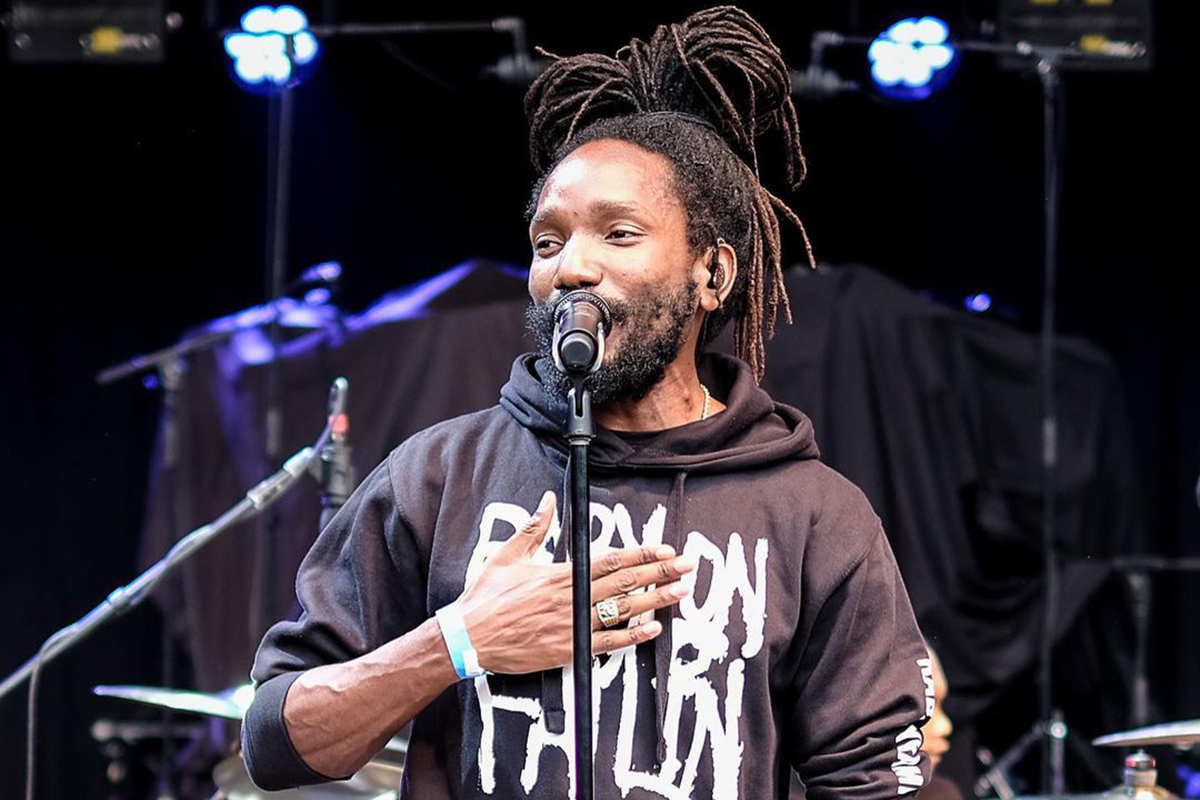Kabaka Pyramid Says Violent Lyrics Holding Jamaican Music Back

Kontraband artist Kabaka Pyramid sparked much discussion about the acceptance of contemporary Jamaican music, after he expressed concern that the violent lyrical content of many of the songs being produced on the island, might be militating against talented artists becoming mainstream successes.
Among the things Kabaka has surmised, is that while foreign gatekeepers are willing to accept violent songs from their own nationals, they are unaccepting of violent-laced content from outside the boundaries of their own countries.
“I want to see more mainstream success for Jamaican artists. International success. But i jus feel di subject matter in di music a hold we back,” Kabaka tweeted on Sunday.
I want to see more mainstream success for Jamaican artists. International success. But i jus feel di subject matter in di music a hold we back
— The Kalling (@Kabakapyramid) January 3, 2022
“At some point in time we the creators of the music have to start thinking as an industry and make decisions that benefit the whole genre,” he added in a follow-up post.
“Galvanizing the diaspora is not the same as international mainstream success. But it’s a step towards that goal,” the Well Done artiste said in his third tweet.
At some point in time we the creators of the music have to start thinking as an industry and make decisions that benefit the whole genre
— The Kalling (@Kabakapyramid) January 3, 2022
His posts were shared by ZJ Sparks, who asked her followers to discuss. Among those who commented was music producer Skatta Burrell, who had an interesting take on the matter.
“Who know better should juss do better. The level of success will speak volume and the domino effect will follow. Same way in early 2000 we followed Vybz Kartel and Notnice down the dancehall trap path and trap we self while they both still continued to make huge hardcore dancehall songs that Garnered huge success example Kartel’s “Fever” certified gold by the RIA. Song peaked No. 2 on the Billboard Reggae Albums Charts and viewed over 100 million times on YouTube. Notnice producing @spiceofficial “suh mi like it” with over 102 million views on YouTube. Shows that we juss need to make music and let the chips fall where they may,” the Coolie Dance producer said.
His compatriot Tanya Stephens, implicitly pointed out that determining which songs contained lyrics which would qualify them to be “mainstream successes” was a subjective matter.
“What is main stream success and what subject matters would he consider synonymous with it? Bear in mind “Don’t Want No Short Dick Man” remains a club banger across the world decades after release…,” Stephens pointed out.
When one commenter noted in response told the These Streets artist that maybe Kabaka was “talking about people singing against gay people or like the whole brawl the other day because spice was opening a pride thing,” Tanya counteracted with “Eminem is a mainstream success story”, pointing to the American rapper who has been a mega success, despite embedding copious amounts of anti-gay lyrics in his songs over the years.
However, Kabaka, as he has expressed in the recent past, during an interview with Soundchat Radio, was alluding to violent lyrics in the music.
When one of his followers in response to his Tweets told him that “Crocodile teeth charted on billboard”, Kabaka responded: “Would u like me to list all the non-violent songs that hit billboard so we can compare? And that’s a remix with Nicki, not the best example. And it’s not only about singles, how are the albums doing?”
Would u like me to list all the non-violent songs that hit billboard so we can compare? And that’s a remix with Nicki, not the best example. And it’s not only about singles, how are the albums doing? https://t.co/yaZCimkwJK
— The Kalling (@Kabakapyramid) January 3, 2022
Music Producer and Curator, Boom Draw, also made his input, pointing out to UK grime artistes whom he said had unwholesome lyrics, but were making millions and streaming aplenty.
“Contrasting to that you have a man like Central Cee in the UK that doesn’t rap about palatable topics but he’s getting 10’s of millions and 100’s of millions of streams on his last album as an independent artist. Nuff of the drill Mandem in general putting up crazy numbers,” he argued.
However, Kabaka contended that similar to how the UK artistes, with violent songs had high streaming in their home country, the Jamaican artistes had high local streaming numbers on the island, meaning that in both cases, their support was coming from their own compatriots, not externally.
“Yea caw they are local artists to that market. Same with hip hop in US. But do the gate keepers allow foreign artists to get that shine? Not in my experience. Them haffi step relatively clean,” Kabaka pointed out.
Yea caw they are local artists to that market. Same with hip hop in US. But do the gate keepers allow foreign artists to get that shine? Not in my experience. Them haffi step relatively clean https://t.co/IajUqfGmIY
— The Kalling (@Kabakapyramid) January 3, 2022
“The local market is doing very well for the relatively low numbers that we have. I don’t think that’s the issue,” he added.
